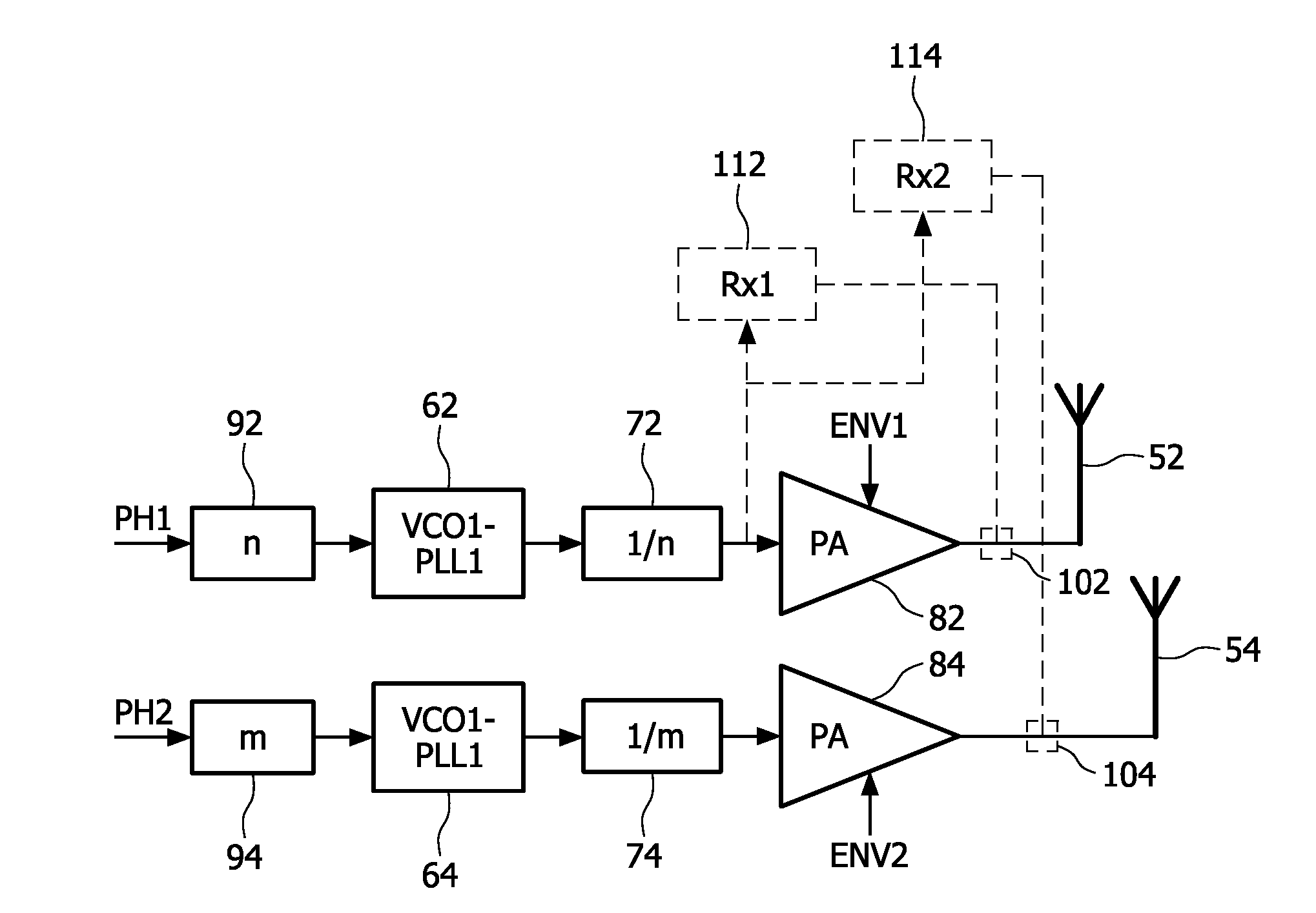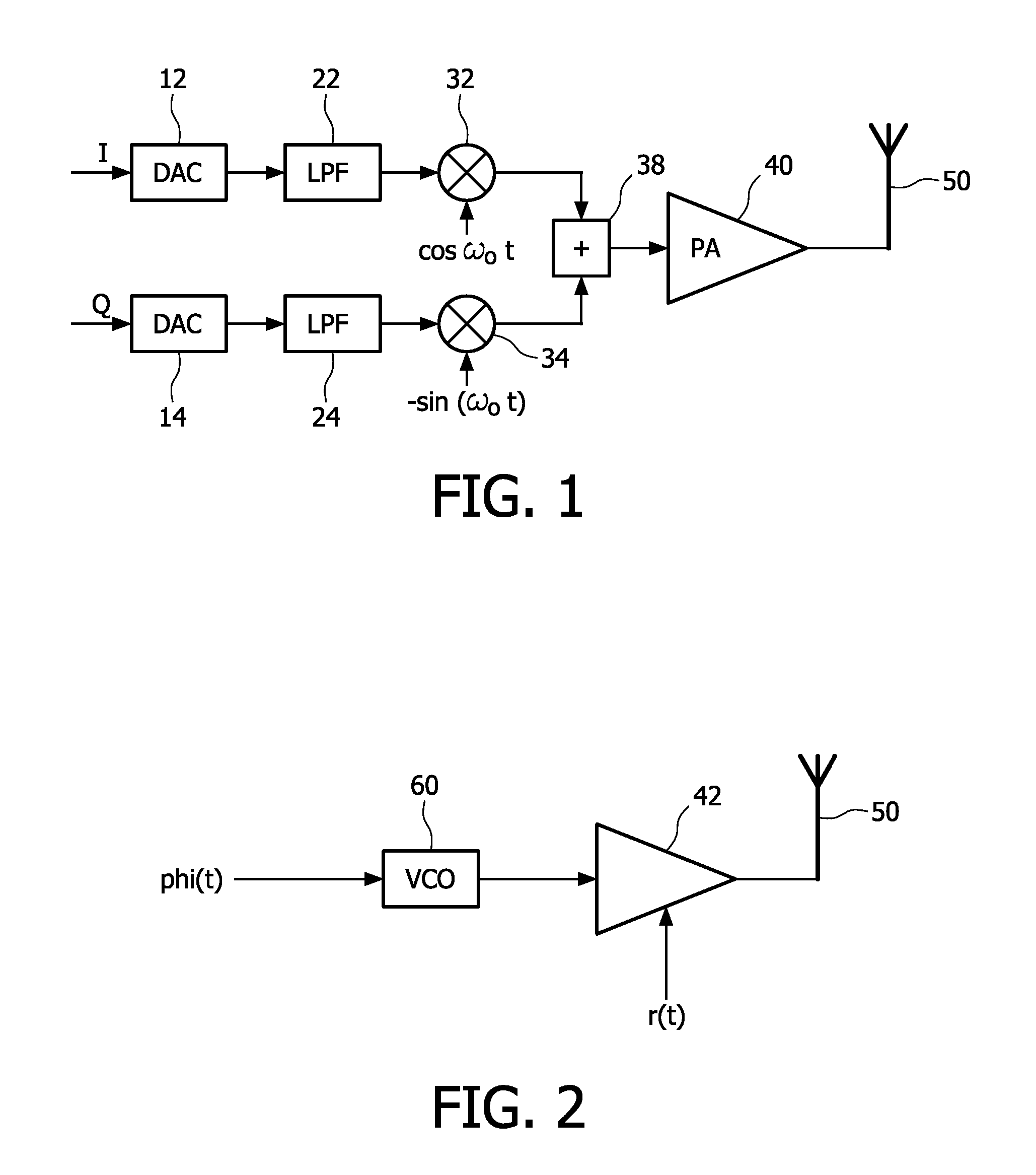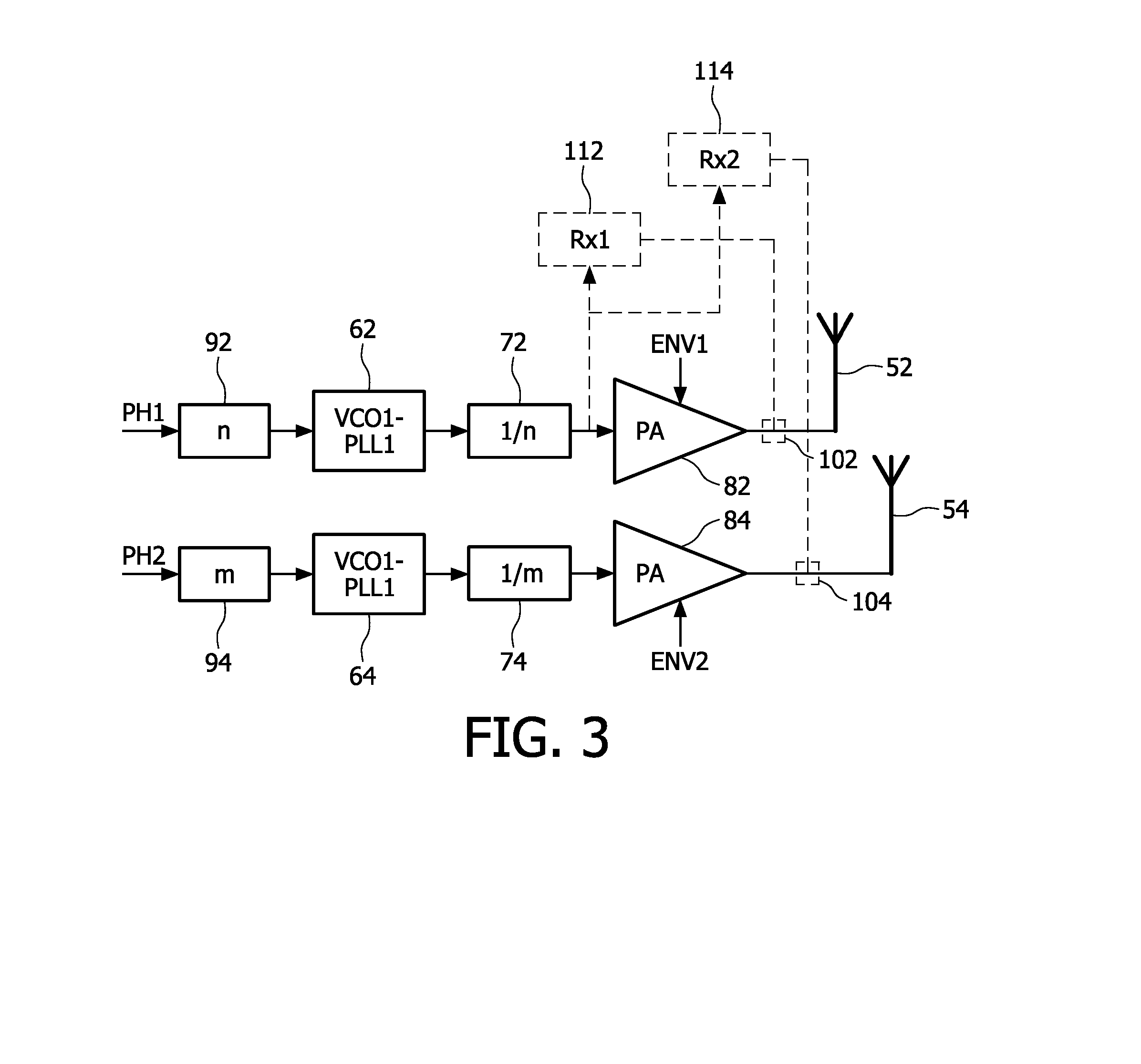Multiple transmission apparatus with reduced coupling
a multi-transmission apparatus and coupling technology, applied in the field of multi-transmission apparatuses, can solve the problems of insufficient power efficiency of the cartesian transmitter, inability to meet the requirements of the error vector magnitude (evm) and the adjacent coupled power ration (acpr), and achieve the effect of reducing the impact of division or multiplication on the modulation index
- Summary
- Abstract
- Description
- Claims
- Application Information
AI Technical Summary
Benefits of technology
Problems solved by technology
Method used
Image
Examples
Embodiment Construction
[0020]In the following, a preferred embodiment will be described based on dual Tx polar transmitter architecture, which embodiment can be implemented in a MIMO system or a LINC (Linear amplification with Non-linear Components) system.
[0021]FIG. 3 shows a schematic block diagram of a polar transmitter architecture according to the preferred embodiment.
[0022]Different frequencies are used for VCOs / PLLs 62, 64 in each polar transmitter path, branch, or chain, thus minimizing the possibility for coupling between the multiple VCOs / PLLs. At the same time a solution is presented for using the best solution for a dual-receiver which may also be required in transceiver systems (e.g. MIMO) comprising both transmitter and receiver parts.
[0023]In the upper path, branch, or chain of FIG. 3, PH1-data denotes the phase information of a first polar transmitter. It is passed through a first correction stage 92 and used as modulation input for a first controllable oscillator circuit (e.g. VCO1 / PLL1) ...
PUM
 Login to View More
Login to View More Abstract
Description
Claims
Application Information
 Login to View More
Login to View More - R&D
- Intellectual Property
- Life Sciences
- Materials
- Tech Scout
- Unparalleled Data Quality
- Higher Quality Content
- 60% Fewer Hallucinations
Browse by: Latest US Patents, China's latest patents, Technical Efficacy Thesaurus, Application Domain, Technology Topic, Popular Technical Reports.
© 2025 PatSnap. All rights reserved.Legal|Privacy policy|Modern Slavery Act Transparency Statement|Sitemap|About US| Contact US: help@patsnap.com



